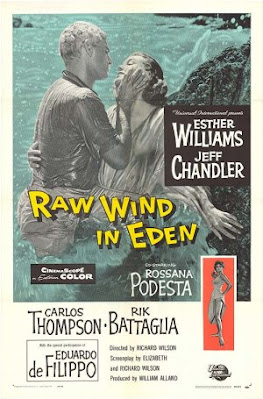 |
| Howard Trevor, Vanessa Howard, Pat Heywood, Ursula Howells |
MUMSY, NANNY, SONNY & GIRLY (aka
Girly/1970). Director: Freddie Francis.
On an isolated if beautiful estate with a sprawling mansion, a weird family -- consisting of mother Mumsy (Ursula Howells), daughter Girly (Vanessa Howard of The Blood Beast Terror), her brother Sonny (Howard Trevor), and their cheerful nanny (Pat Heywood of 10 Rillington Place) -- collect people and keep them prisoner for bizarre fun and games. If they don't obey the rules they are "sent to the angels." Their latest victim is the "New Friend" (Michael Bryant of The Ruling Class), who after a period of adjustment, so to speak, begins "servicing" Mumsy and Girly, with a jealous Nanny and Sonny becoming more and more agitated. Whose head will wind up boiled in a big pot on the kitchen stove?
 |
| Michael Bryant with Howells |
Based on a play ("Happy Family")
which utilized only the characters but not the rest of the plot,
Mumsy is a weird -- too weird -- black comedy that is, unfortunately, devoid of laughs aside from one or two moments (one of which might be the boiling pot, although it's a wonder that nobody
smells anything). Although the actors are very, very good, handling these oddball, irritating roles with aplomb, it's hard to
take any of them, especially the brother and sister, almost from the start. Things begin to get more interesting towards the end, when the quartet turn against each other, but by then it's too late. These psychos never come off remotely like real people. Freddie Francis only made the picture because he'd always wanted to film inside the impressive setting, Oakley Court.
Verdict: Proof positive that even homicidal weirdos can be dull. *1/2.





















